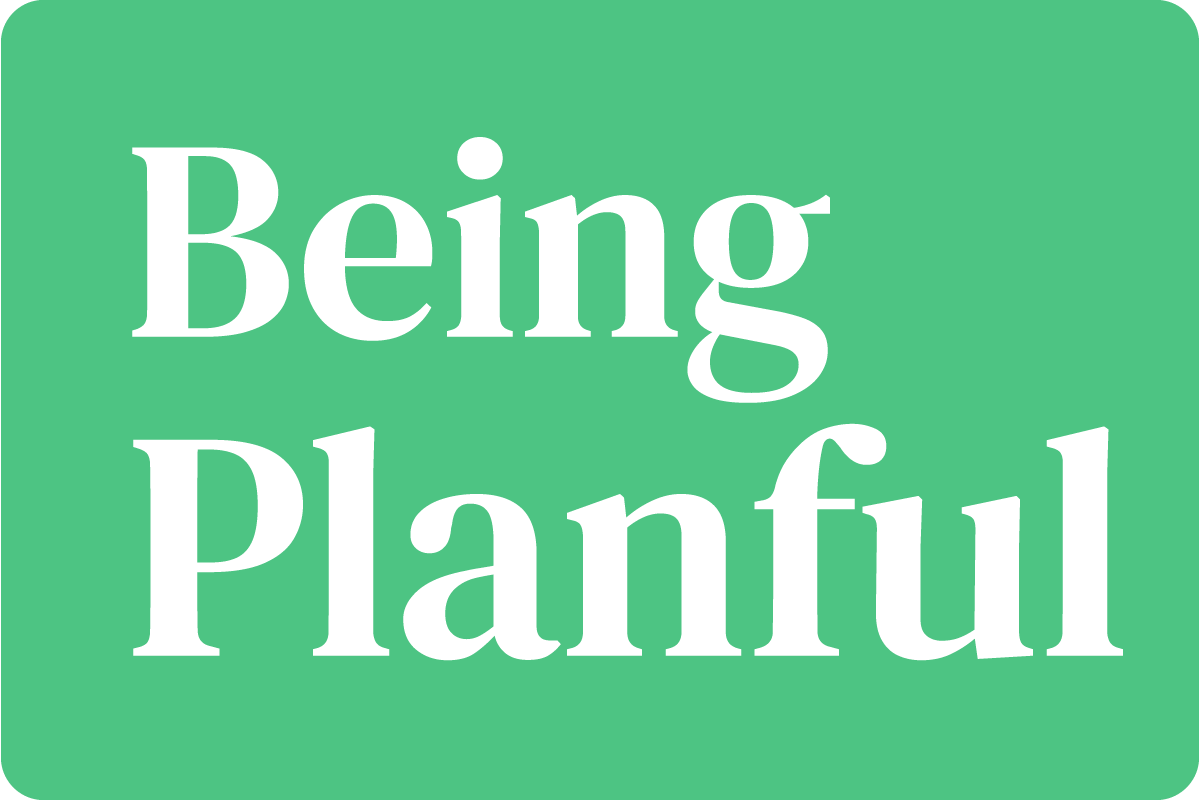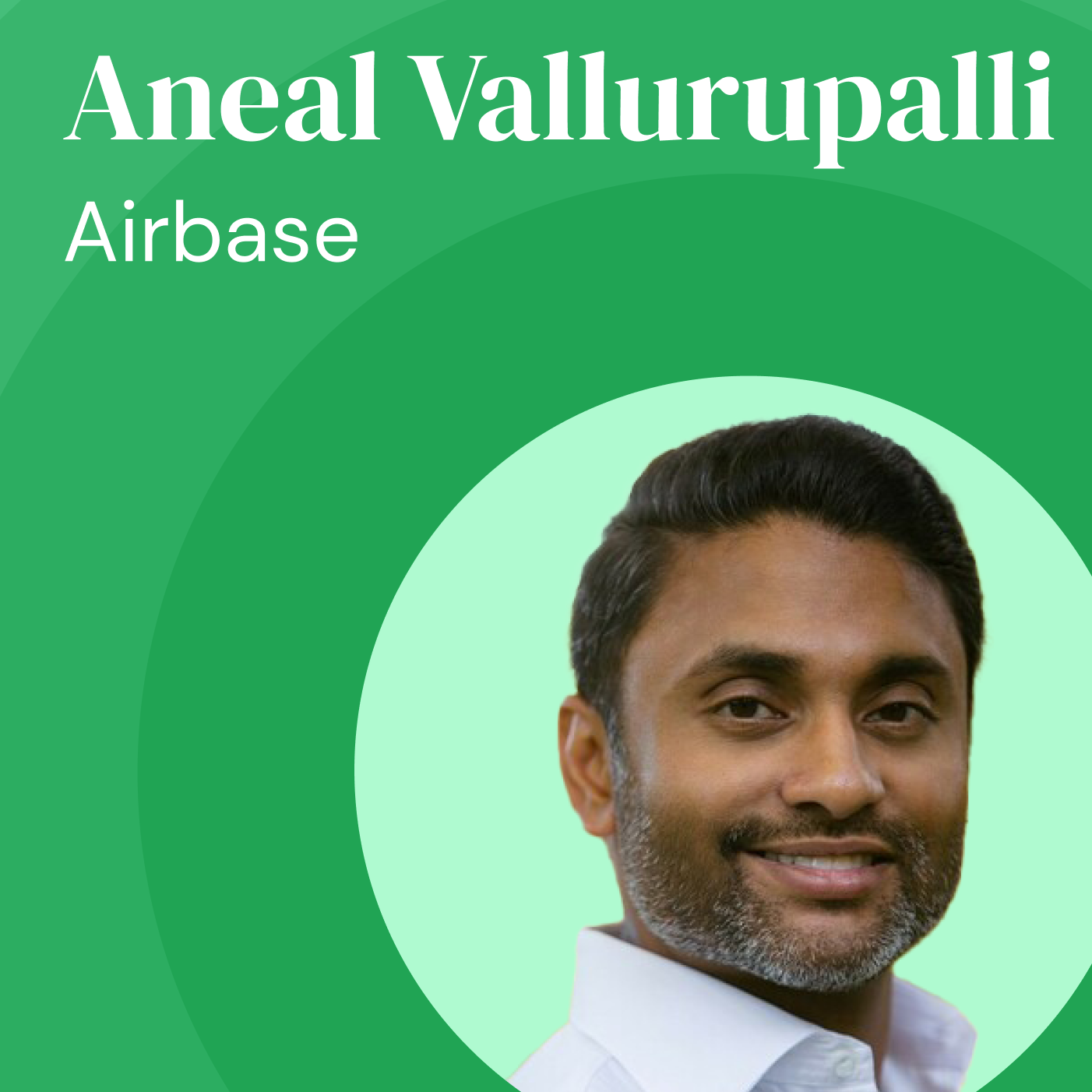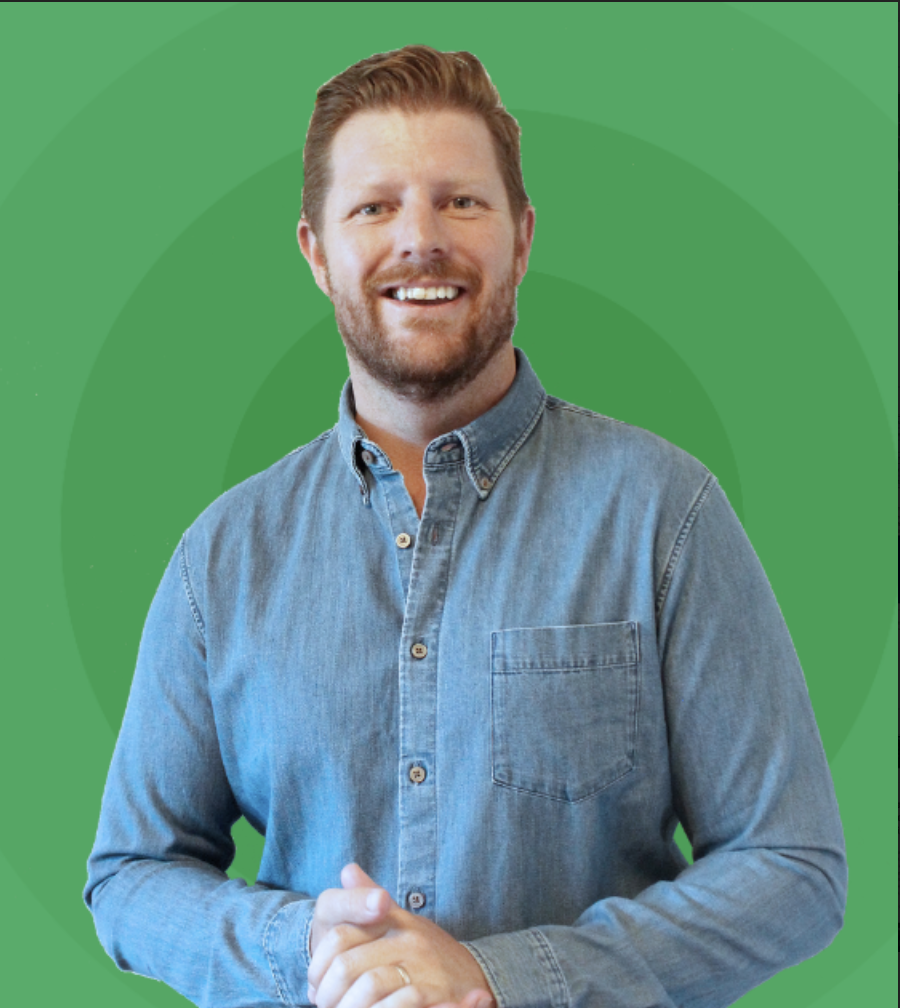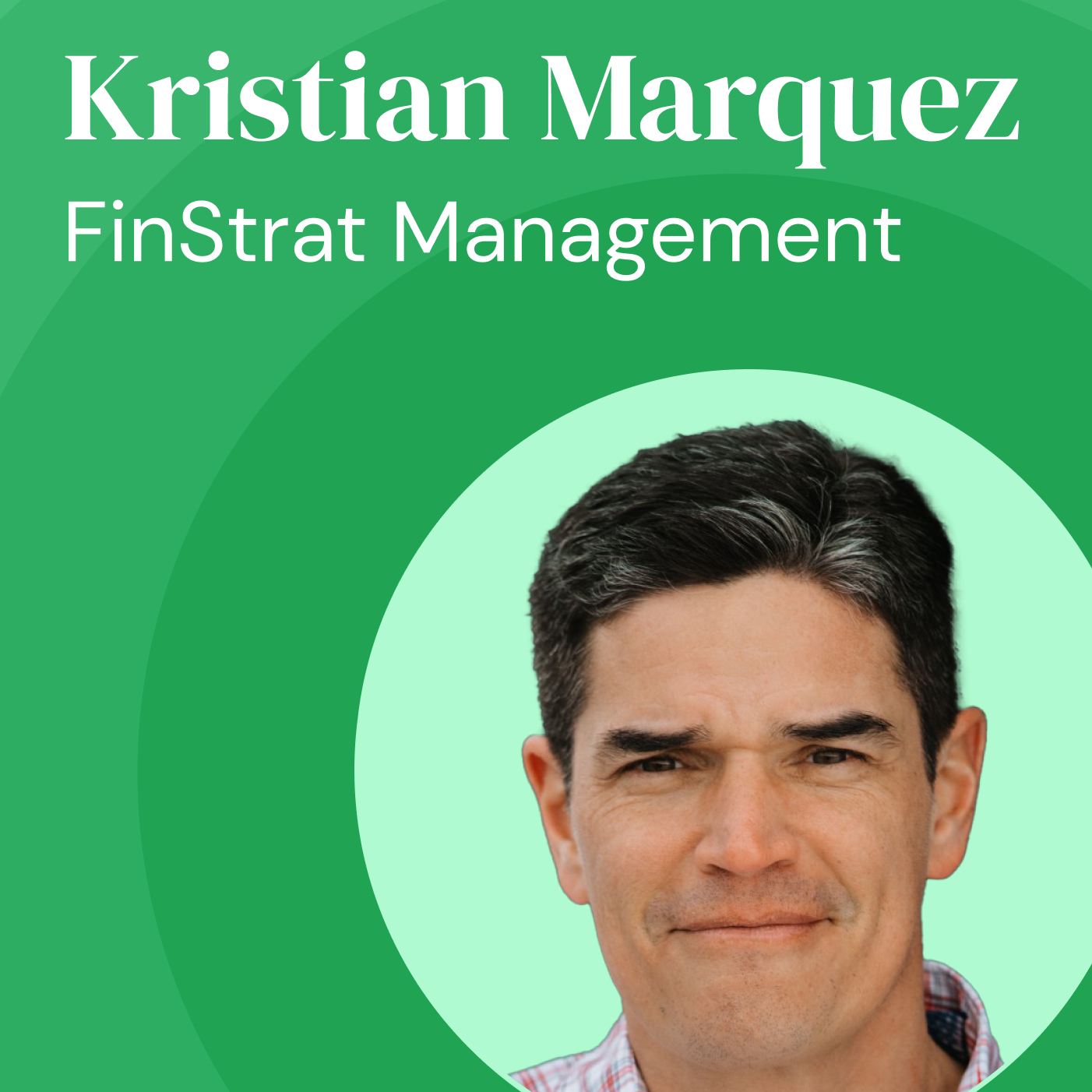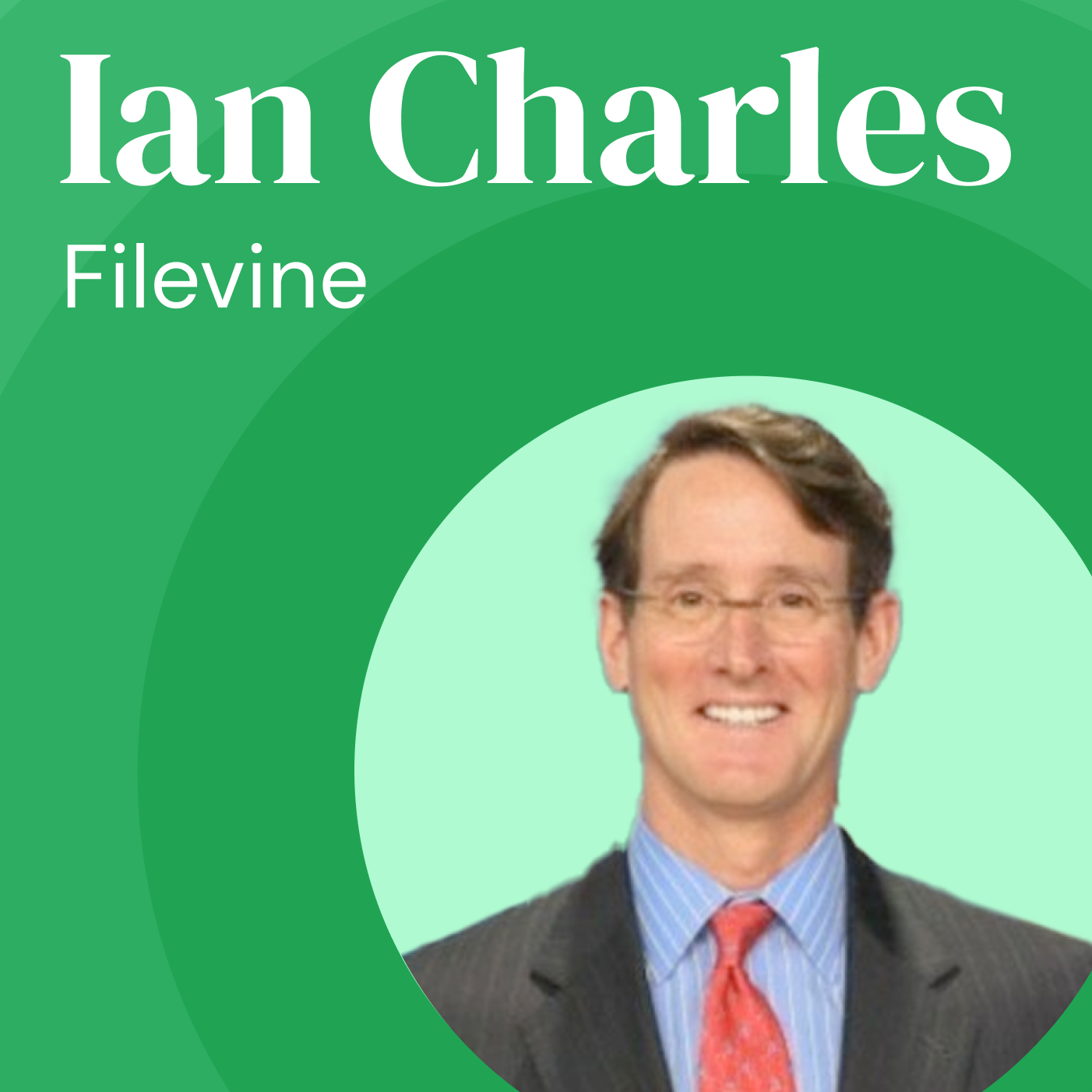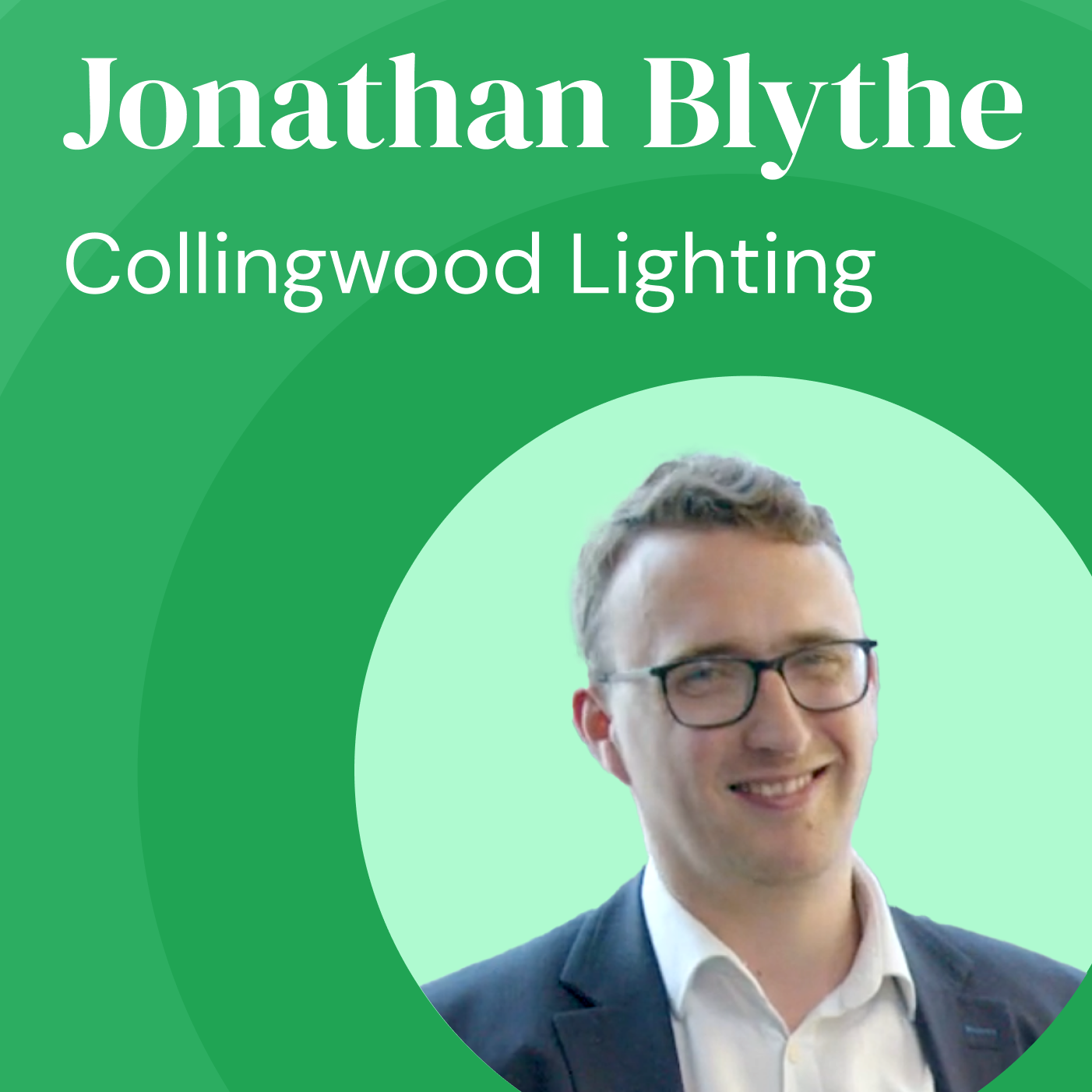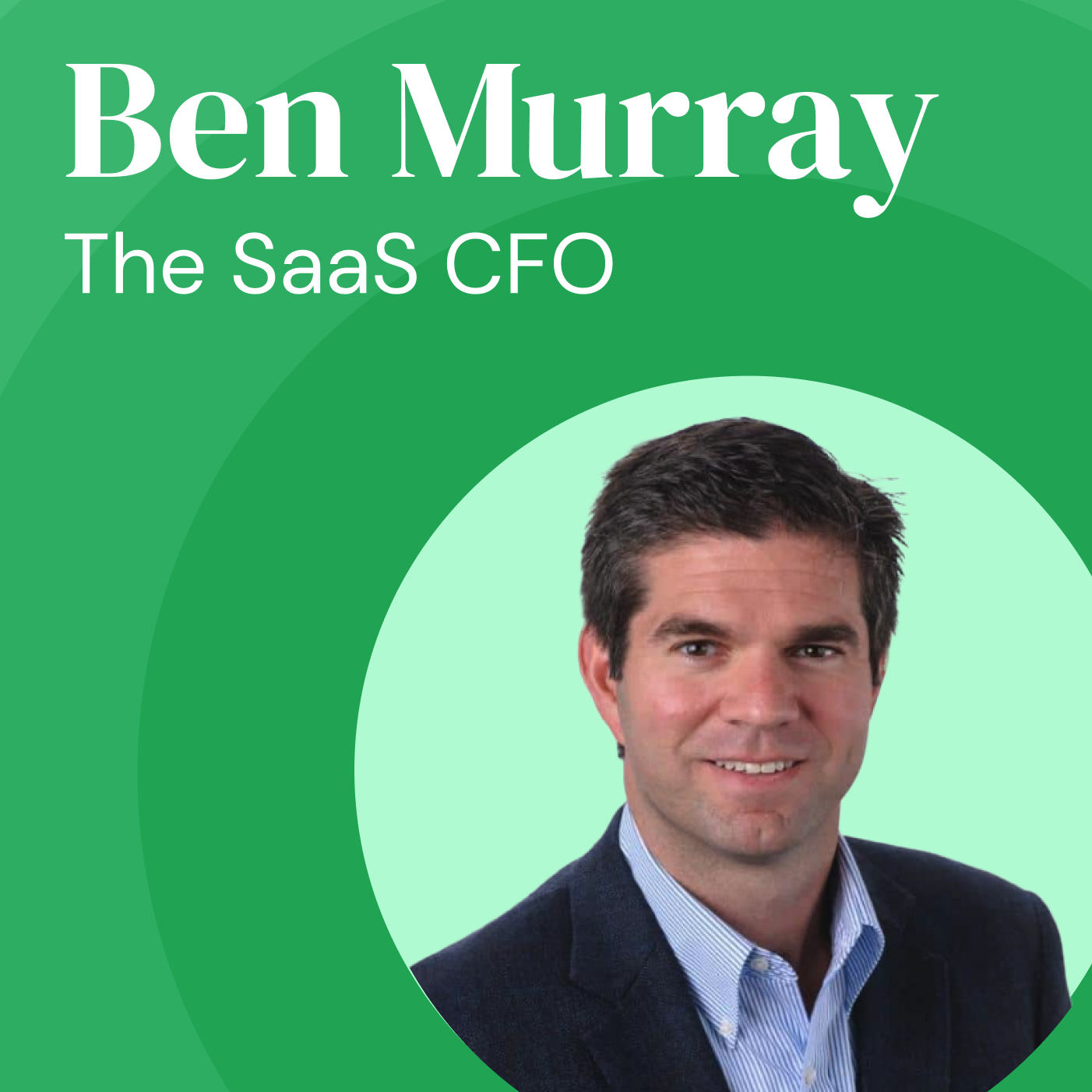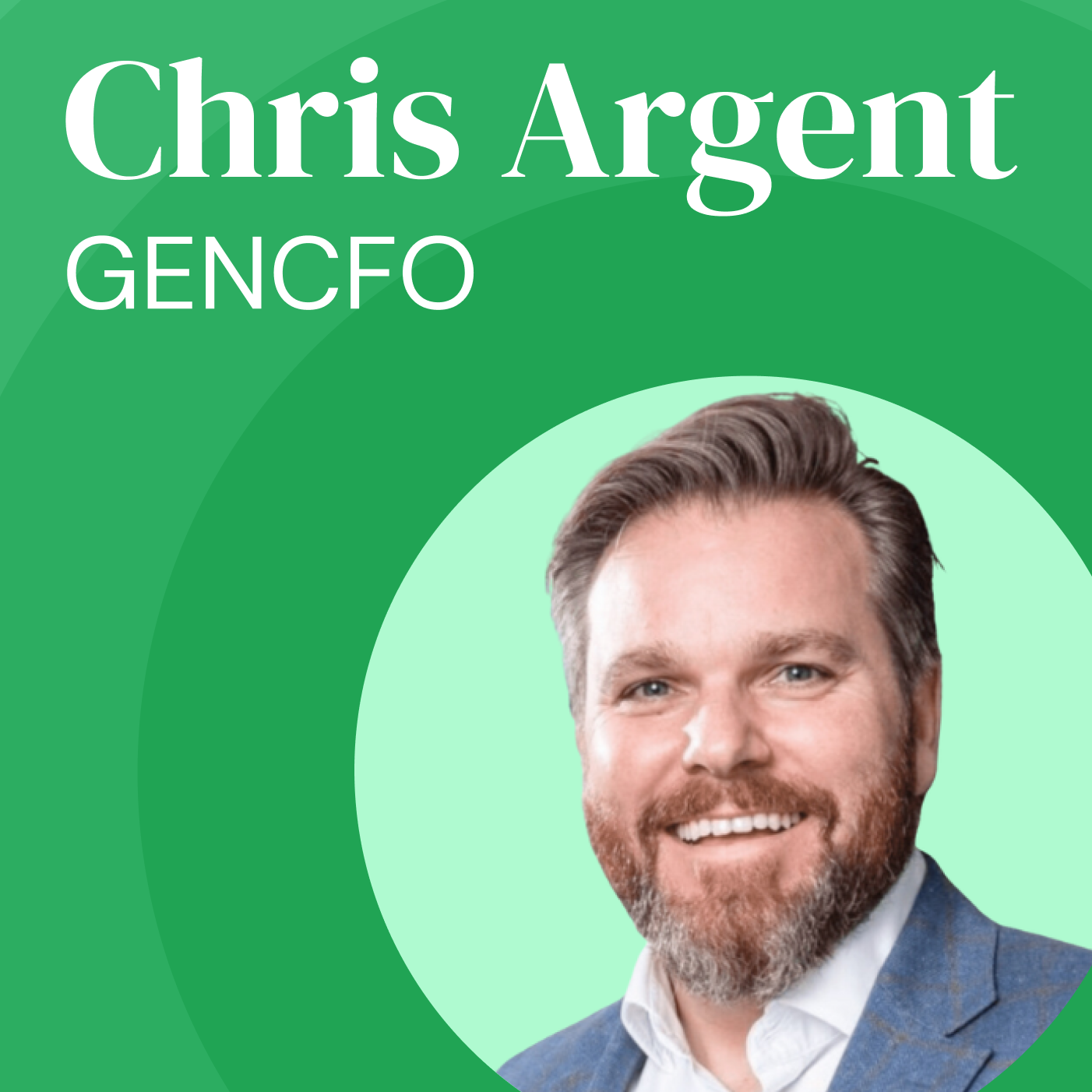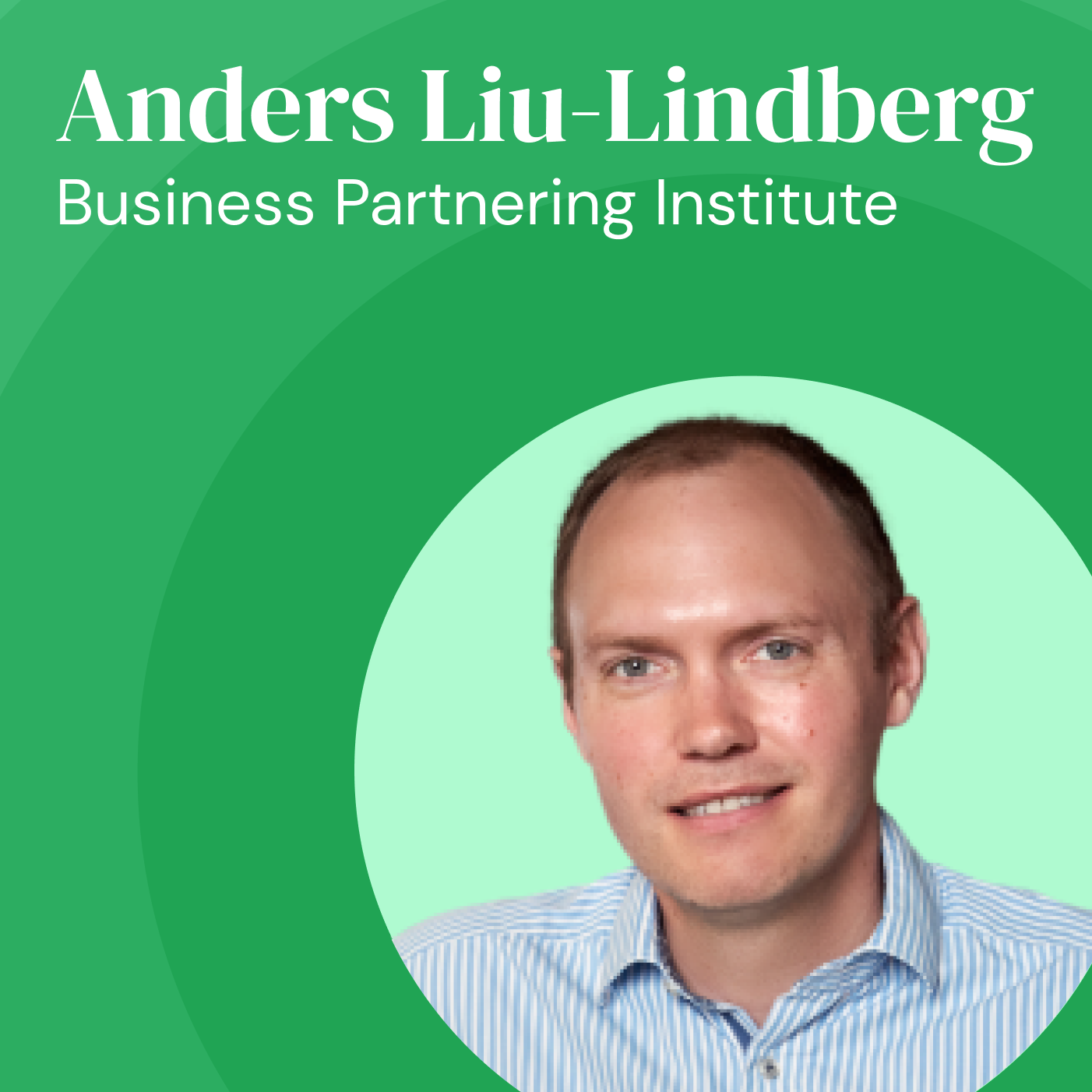From Investment Banking to Operations: A CFO's Journey | Aneal Vallurupalli
- 0.5
- 1
- 1.25
- 1.5
- 1.75
- 2
Rowan Tonkin: Hi. I'm your host, Rowan Tonkin, and welcome to Being Planful, the show for FP& A leaders and planning experts. Hi, everyone. Welcome back to Being Planful. I'm your host, Rowan Tonkin, and I'm really pleased to be joined today by Aneal Vallurupalli. He's the CFO at Airbase, and I'm really looking forward to this conversation. We've had a great prep call and I'm really excited. Welcome, Aneal.
Aneal Vallurupalli: Thank you, thank you. Appreciate it and glad to be here.
Rowan Tonkin: All right. Well, in our prep call we talked a lot about Aneal's experience. For those that don't know, jump over to LinkedIn and check it out, but Aneal was in M&A for a while on the investment banking side and then he became an operator after kind working on the buy side, the sell side, jumped into operating at a large scale and then at large growth at scale. Do you want to tell us about that experience at Guidewire, Aneal?
Aneal Vallurupalli: Yeah. I started my career, as you mentioned, in investment banking, and it's a very broad term. More specifically, I helped technology companies either try to sell themselves or I worked with buyers that would want to buy a technology company, simply put. The majority of those deals and companies I worked on were enterprise software businesses, so they were not call it the Snaps or the Facebooks and things like that or consumer- focused products, so a lot about enterprise software, a lot about infrastructure, et cetera. One of the companies I ended up working with closely was called Guidewire, and it was one of those companies as we were representing them I knew they had something special, I knew that they were kind of cornering this space of property and casualty insurance software. Today, 20%+ of the entire world's property and casualty insurance runs on Guidewire systems. What does Guidewire do? It is quite frankly the guts of an insurer, the property... Sorry, the policy, the billing, and the claim software of an insurance business. If you all know insurance companies, that's really the three things they do. They write policies, they bill for those policies in the form of your premiums every month, and they take claims when you get in a car accident or your house gets flooded or damaged, et cetera. I spent a few years in investment banking, and, honestly, I knew that it was a good foundation and a good stepping stone and some place where I could actually learn a lot. However, I didn't get the satisfaction of feeling like I could actually help these companies, and nor did I know enough at that time to understand the depth within the company and how it operates. That was my natural curiosity in wanting to maybe move over to the operating side. There were other opportunities, maybe stick in investment banking or go to growth equity maybe or go to venture capital, but really I feel like the thing that I really like to do is fix problems. As kind of that natural curiosity I've always had to fix problems, it felt more attuned and better adept for call it an operator. That was the curiosity to move on to in- house at a company versus sticking with investment banking.
Rowan Tonkin: There's a lot of problems when you're an operator, right?
Aneal Vallurupalli: Yeah. There are a lot of problems when you're an operator. When I came in, and this is no insult to investment banking or to operators, but it's just two different worlds. It's kind of like saying, " What's it like to be a realtor versus a general contractor building a home?" That's like the realtor really understands market, how to position the home, how to best attract buyers to walk through it, and a builder actually knows how to best and most cost- effectively build that home and efficiently.
Rowan Tonkin: Mm- hmm. Yeah. They have ideas of what the market might like, but it's also a different market. They're looking at the homeowner and the person that's living inside of it, which is invariably as an operator your customers as opposed to the owners of the business.
Aneal Vallurupalli: Right. When I joined Guidewire, to be honest I didn't know much about operations. When I joined the company, I felt like Priscilla Hung, who's the COO and president there and she's been there call it I think 12, 15 years now, and the then co- founder CEO were kind enough to bring me on to the company to A) be the founding member of the corp dev team, the corporate development team. What I learned over my prior years in buying and selling companies, I could now apply for this business as it wanted to look at potentially acquiring other businesses. That was great. The company could take knowledge from me and I had some of that knowledge to give. Then symbiotically, I could take the knowledge from the business about how to operate in different areas, and with that that team was great in allowing me to touch many things. During my five years at Guidewire, I touched everything from global sales operations to owning the company's long range plan and strategic finance to owning pricing for the business and how we price our products and pricing changes to call it general business analytics and call it TAM penetration analyses and new markets we may want to go into. Over time, what I got to see was a company that was around 6, 700 employees when I joined and newly public, I joined a one week after they went public or one or two weeks after they went public, and by the time I left five years later, a company that was five times larger employee wise and call it 5, 6, $ 7 billion of market cap. It was a business that grew and I kind of was fortunate enough to grow with it and understand how this works. The fun part about the role there was generally corp dev teams will help buy a business for their company, but the really cool part was we did five acquisitions while I was there as small as a few employees and as large as a few hundred. Our team there actually managed the entire post- merger integrations. It wasn't just about getting the deal done.
Rowan Tonkin: Wow. That's cool. Yeah.
Aneal Vallurupalli: It was actually, " Okay, when are we going to be on our Salesforce instance? When are they going to be in our ERP? When are we going to have this product built out that we said we were going to build out for the synergies? When are we going to train the AEs to be selling this product that we bought in? How are we going to do that? When are we going to put this in their comp plans to push the product?" That was another level in which I took what I learned from banking but was able to understand much more about how do you make a deal successful as I think 99% of M& A deals are failures, actually.
Rowan Tonkin: Yeah, that's a scary statement. Then you go from joining a large company, I would consider at that time going through extraordinary growth over five years since it's not small growth by any stage, then you make the decision to go smaller.
Aneal Vallurupalli: Yeah. Yeah.
Rowan Tonkin: Why? Most people, when we think about it it's like, " Oh, I want to go onto the bigger and better thing." What was the appeal about going smaller and what was that shift like for you?
Aneal Vallurupalli: Yeah. When you're anywhere for 5 + years, back in the day... My wife's been at a company for nine and a half, 10 years now called Cloudflare and she was very early on there, but when you're anywhere you really start to do a lot of soul- searching. When you're there five, six, seven, eight, nine years, you're like, " What do I do next?" I mean, because what you do next, you almost feel like it has to be just as good, it needs to be-
Rowan Tonkin: Yeah, yeah. Yeah.
Aneal Vallurupalli: Need to making the right bet. It's not just about you and your ability to get your job done right, it's also about picking the right businesses. Some get it right and some don't and you have to be open to that, but the thing I cared about was that I got to the size in Guidewire where there started to become specialization. If you recall, I just described I got to be this catchall group that got to touch a bunch of things. Over time, specialization starts to happen when your company starts to get large enough, rightfully so. I left Guidewire right around when that was starting to occur. The reason was because I wanted to take what I had learned call it at a public business and see, " Is there any way that I can take some of these best practices that I've learned at the company at scale and see if there's a way to apply them somewhere sooner or an earlier stage?" That doesn't mean that I could go from a public business to a seed stage company and be great value add, but I knew that I wanted to go one step or two steps smaller. My wife's prior boss, Roy Ng, great guy, prior CEO of Twilio, he was the COO of SAP Cloud, head of I think West Coast M& A for Goldman, he was at SuccessFactors for a while, gave me a call and he was like, " Hey, do you want to come run finance for this company I just joined as COO and president called Mapbox?" He's like, " They're growing super fast." I was like, " What's a Mapbox? I've never heard of a Mapbox." He was like, " No, you got to listen to this." He's like, " Actually, they're cornering this mapping API space and really developer focused and it's an open source PLG, product- led growth motion." I was like, " Wait a minute. I've been at Guidewire where it's been enterprise sales, Oracle sales reps, really large ACV, half a million, million dollar ACVs, and that outbounding motion." I was like, " It'd be really cool to actually understand the inner workings of a different go- to- market motion and help stand up finance for that type of a company." That was another... I didn't see it as, " Go get a big title at another company and go smaller." I was like, " Wait a minute, there's a really good leader here, wants me to come in, is going to trust me to kind of oversee finance, and that means a lot to me." Then also I was going to get to understand a whole new go- to- market motion, open source and product- led growth and a completely different business model, which to me was super interesting.
Rowan Tonkin: What did you learn... I'm sure we could sit here and talk about the differences between the two motions for hours and hours and hours. What did you learn that was actually similar? I think that's the more interesting question is what was the similarities between those two motions as you come from your perspective of much larger, completely different TAM, frankly, and then you go into an organization that's smaller, earlier stage, and a completely different go- to- market motion? What were the similarities?
Aneal Vallurupalli: Yeah. I'll say that one thing that is similar is the want to be picking the right bets as a company.
Rowan Tonkin: Mm- hmm.
Aneal Vallurupalli: When you're a series B, C, D business, there can be the want to go touch everything or be all to everyone, be everything to every type of customer because everything's a greenfield opportunity, everything's like, " We can go, we can go, we can go." I think one of the things that was similar, though, was that a public business is all about ruthless prioritization because a public company, you can't take on everything. I mean, number one, the market won't bear you being able to take on everything so inaudible. I believe that even private companies at later stage have that similar type of, " Wait a minute, but we already have this revenue base that we're serving." While I was at Mapbox, we grew 4x in two years and headcount I think 6x while I was there from 80, 100 to 600 employees really fast. Even with that rapid growth, ruthless prioritization was a common theme because we were just stretched too thin. We couldn't do everything.
Rowan Tonkin: Yeah. You can't waste time on the wrong things because otherwise you're going to miss the market opportunity or miss the timing window or ultimately miss that new revenue that extends the burn, right?
Aneal Vallurupalli: Yeah. No, I mean, and Guidewire... When I joined, it was a newly public business, as I mentioned, but it was only serving the property and casualty insurance software space. Think of your State Farms, Nationwides, Allstates, Access, PNCs of the world. There was always this question, " Should we go into life for health insurance and other verticals? Because there's a greenfield opportunity, there's this... Oh my gosh, there's this whole TAM we can just open up and we can increase growth and blah, blah, blah. We'll get to a larger scale." Marcus was great in that he always said, " There's enough TAM right here. Let's just stay focused. Let's continue to build the product that we know we can build for this space before we go and take large bets somewhere else that may not be as greenfield as we think they are." I think that that's always stuck with me because that was a pivotal point for that company. As a public company, newly public, had we wanted to get into life and health, it could have been a drastic situation, could have been very poor for the business.
Rowan Tonkin: Yeah. So you go from there, Mapbox, right after those big experiences at Guidewire, you go from Mapbox, 4x- ing growth, 6x-ing employees, and then you go smaller again.
Aneal Vallurupalli: Yeah.
Rowan Tonkin: Explain the rationale, which is I'm sure... Again, having listened to you for the last 15 minutes, I'm sure it was like, " I was going to get to learn something new, right?" I think that's inaudible.
Aneal Vallurupalli: Yeah, no, I mean, honestly, actually, the interesting piece about going to Mattermost, and that's where I went to after Mapbox, Mattermost was also PLG, product- led growth, open source so I was like, " Wait a minute. I understand this motion. I can actually bring the things I took from Mapbox to this business." But the interesting piece at Mattermost to me was that the CEO, for the first time I was aligning directly with the CEO, right?
Rowan Tonkin: Mm- hmm.
Aneal Vallurupalli: Obviously Roy was amazing as COO, but it was also great to come in as the right hand to the CEO, and I was going to end up leading all of G& A, so legal, IT, sales, operations, all these things, business systems, analytics, business operations. For me, that was interesting because I came into that company and went a little smaller for sure. I joined Mapbox I think 100, 130, went to about 600. Mattermost when I joined, it was back down to 40, 50, 60 and then scaled that quickly again, but it was learning something new. It was like, " Wait a minute. Oh, wow." This is pre- COVID. It was remote only pre- COVID.
Rowan Tonkin: Yeah. Wow.
Aneal Vallurupalli: I was like... I remember sitting down thinking, " Wait a minute. Can I do this?" There's a lot of risk to this because the company is already in 20 countries and there's not many businesses that are remote only at that time it was only GitLab, InVision. There was inaudible. There was two others, and so I was like, " Wait a minute. I need to get close with all these leaders at those companies and understand them." So I spent a bunch of time with Sid at GitLab, he's one of the reasons that they opened sourced Mattermost, he was close with Ian, spent a lot of time with the general counsel at InVision, spent time with the VP of legal, Jamie Hurewitz, who was at GitLab as well and actually she ended up coming to work for me at Mattermost. It was a new experience, and for me that was interesting to say. I also... While I will never say I want to lead the people team at every company, that's the right thing to do, I don't think any broad leader of a company can be their best version of themselves without having managed the people team at some point in their career. I think it is a very good, wholesome experience for a finance leader, an operations leader to help lead the people team, obviously with good leaders underneath them clearly, but it gives a whole nother appreciation for execution and call it the realities beyond the Excel file.
Rowan Tonkin: Yeah, the human component. Additionally, you're also running... Not every CFO has the functions of things like sales ops, biz ops, and so tell us about... That is a very broad remit, ultimately.
Aneal Vallurupalli: Yeah. I think, look, my passion has always been data and analytics. I've just always loved it. Honestly, because I felt like when I was a banker I couldn't figure out how to get the data I wanted and needed and I would trawl the internet to try and find stuff and it was never available, which is why I have this podcast that Airbase asked me to host and I purposely titled it What I Wish I Knew because there's a whole bunch of stuff I wish I knew 15, 17 years ago. But I think that, and this came back to my time at Guidewire, when I joined the company it was a newly public business, that we didn't have a single repository that actually tracked ARR by customer, by segment, by geography, by product, by discounting, by blah, blah, blah. When I joined the company, they had three separate instances of Salesforce, AMER, EMEA and APAC. None of them talked together, with different staging and different stuff, issues, and so like, " How do I bring those all into one instance? How do I then get the company to forecast consistently because the biweekly forecast stages and everything are wrong otherwise when you do a roll- up?" That kind of is what spurred me to say, " You know what? Can we bring a lens of data hygiene and better data practices as early as a stage can... An earlier stage for business so we are making smart decisions on a weekly basis based on the information we have at hand?" The benefit for me that ended up occurring was this phenomenon of Snowflake and all these things coming into play over the last eight years, nine years, which weren't necessarily there. They weren't necessarily ubiquitous 12 years ago when I was a Guidewire. 13 years ago. So it was a nice marrying of, " Wait a minute. We can actually get the tooling we want, and actually there's a good..." The finance and operations leader is a good person to own this because we kind of are running a shared service across the company anyways. We can be bipartisan. We can actually say, " You know what? Marketing, no. This is why we need to define a lead this way. AE, this is why this is a booking and not a booking." And come up with the definitions for our metrics and then script our systems to be able to show those definitions and effectively metrics and tooling.
Rowan Tonkin: Yeah.
Aneal Vallurupalli: For me, I always had the sense that it's great for people around the company to have data at their fingertips to leverage as necessary to make the points they need for the business.
Rowan Tonkin: I think what you pulled on there around acting as the arbitrator, if not the Switzerland of saying, " Hey." I'm in marketing so we fight with sales all the time allegedly, but it's less about the... It's ultimately where's the agreed upon definition? Often most of the argument is we just have different definitions of something. inaudible.
Aneal Vallurupalli: Every company I've come into has had different definitions for booking across the company, so how can we even report basic things if everyone's thinking about something different? What about active customer, active user?
Rowan Tonkin: Yeah. Just getting that neutral zone where someone can be the arbitrator and say, " Actually, no, this is how we as a company are going to define this," actually provides so much freedom for the functional leaders to then say, " Okay, great. That's the definition. Now we're just going to work within those controls and allow you to focus on actually delivering the business value as opposed to the internal politicking of, 'I want to measure it this way and someone else wants to measure it another way.'" It creates so much efficiency throughout the business.
Aneal Vallurupalli: One of the... I don't know if fun is the right word, but something that I always get jazzed about doing when I join a company is, number one, like I mentioned, just figuring out what are these metrics and definitions and things that the company cares about? But the second most important thing is then doing a data map, so what systems are where, what's plugged into what, what's pulling, what's pushing, what's interacting and not interacting, who's pulling what metric from Salesforce versus another metric from Marketo versus another metric from the data warehouse, right?
Rowan Tonkin: Mm-hmm.
Aneal Vallurupalli: Then ultimately saying, " How do we think this should work and how can we get this to scale?" Because what would it be like to have, put it simply, a single worksheet that has every data point for every customer, their usage by product, their ARR, their ACV, their paid bill or unpaid bill, their license count, how many active users, non- active users. All these metrics are, if you think about it... Number of times they've touched a website or gone to a help desk or filed a support ticket. All of the things I just mentioned there are different systems.
Rowan Tonkin: Yeah. Yeah, and often systems that don't talk to each other and systems that don't allow then future decisioning to be made. Take a lot of that information. Well, that's all helpful in propensity to buy, propensity to churn. Where's the white space in my accounts? Who should I be building new product for? Should I be going up market, down market?
Aneal Vallurupalli: Even in this market more than ever, I've found that value metrics and the customer usage are the most important thing. That is because think about what it's like to be an account manager or a customer success manager and as you're doing your prep for a QBR or for your call that's coming up today or tomorrow, you're able to look at what's usage been like, licensed versus unlicensed, have they paid their most recent bill or not, have they filed a support ticket or not, what's their pain points, has there been any change at the company in leadership or not, and then actually being able to come up with your framework for, " How can I have the most constructive conversation with this account possible to get them to leverage our product in the way that we know they're going to be a better version of themselves?"
Rowan Tonkin: Yeah. Yeah, and then be able to then deliver a conversation/ roadmap, depending on the health of what you just defined. That roadmap for the customer might be all about growth or it might be all about like, " Here's how we need to support you through what could be a difficult time for many folks right now." That then helps give the business that visibility into, " Where does our business need to go?" You might need to spend more time on supporting your existing customers versus trying to grow them. That's really, really powerful as you think across that lens, and, coming back to what you said earlier about Guidewire, allow you to focus and focus on the market that you're currently serving and what is that market's needs. I think that's really, really crucial.
Aneal Vallurupalli: Yeah, and you can use the usage data, find the highest statistical relevancy of the customers that are actually the most successful with the highest NRR and try and find more of those. I mean, look, data and the ability to gather that data is just the cusp of what's needed. Then I've always said at the company that I've been at, and even here, Thejo, our CEO, and I adopted this and the leadership team has as well, is the company then goes on a data journey together, meaning how do you then use it to make decisioning across product managers, CSMs, AEs, et cetera? That doesn't change overnight, but the idea is that if you start today, really six, eight quarters from now you're a healthier business.
Rowan Tonkin: What's your perspective on... If you think about that journey that we just talked about, 15 years ago it wasn't the CFO that was leading that conversation. It was the CIO or it was maybe the marketing leader because rapid adoption of technology and data focus in marketing happened kind of around the time of the iPhone and we could track everything and CFOs want us to track everything. Then sales gets into the game with all the sales tech and now it feels like we're in the world where actually all of this technology is coming to bear for the CFO and we have a massive shift in perspective of CFOs historically that were not very technology led or technology focused to now being more folks like yourself that are extremely technology experienced and wanting to drive and own more of that technology relationship. What's been your perspective of that shift over time, having gone through it yourself?
Aneal Vallurupalli: Yeah, look, I can't speak for what was it like 20, 30 years ago and the shift from then to now, but what I can say is that without requiring full pods of employees to go after this effort, you can actually do everything I mentioned pretty scrappily, quickly, actually figure out the definitions for the company that we want to track, the things we care about, the OKRs that we care about as a leadership team. Then really what ends up happening is from there, you end up working your way back as to, " How do I need to report on these daily, by the minute, by the hour, weekly, monthly? Then back into what does real time mean and et cetera?" What I'll say is that because we're kind of this shared service, you'll see it sit with the CFO now sometimes, you'll also see it sit with COO. It just depends, right-
Rowan Tonkin: Yeah.
Aneal Vallurupalli: ... whatkind of role you're in, but it has to be led by someone who really believes in the change management side of it because it's not just about, like I said, getting a data point visible and reportable. It's actually about, " How do we force it to be leveraged across the company and challenge the business to leverage it consistently across the company?" That's a lot of change management and behavior management.
Rowan Tonkin: I think that's the... If that's the one takeaway for all you listeners, it's that one right there for me that I've seen so many instances of transformation projects get kicked off and we spend hundreds, if not thousands, of hours leading these initiatives and then they're just never utilized, right?
Aneal Vallurupalli: Yeah.
Rowan Tonkin: The data's there and they just sit in a wonderful data store that's accessible by everyone, but no one looks at them for insights on a regular basis. We just spent all that money to say that we did something and we never use it for any insight delivery or anything like that on a regular cadence. I think that's the most important part. Most listeners of this podcast are in FP& A and what are you looking to do every day is help guide and deliver strategy and course correct the business to where it should be going for the best value, whatever that metric may be, for your ownership, your stakeholders, and what Aneal just said there was that value delivery and forcing the business to use it every day. I mean, that's frankly gold, so thank you, Aneal.
Aneal Vallurupalli: Look, appreciate it. I mean, look, honestly, I've been at the companies where I put the effort in and it was not leveraged appropriately so I always thought, " How can we de- risk that from happening again?" Because forget about myself and it being a waste of my effort and my team's efforts, it's actually not a good thing for the company for it to not be leveraged so how can we get the company on the track it needs to be on? Oftentimes that obviously requires leadership involvement and everyone agreeing we need to care about these things.
Rowan Tonkin: Yeah, and they ultimately help hopefully the company outperform itself on a more frequent basis. That's the whole intention when you sign up to do that transformation project. It's, " We're going to do it for this reason." It's about getting that value realization.
Aneal Vallurupalli: Yeah. Honestly, that's when you go beyond just measuring S0s, S1s, and conversion rates and blah, blah, blah to a new booking and number of reps and a quota- OTE ratio and a capacity model. That's when you start to dig into, " What is the product doing for our customers and how then can we replicate that across other segments or other personas or other use cases or other industries?" It's another way of model. It's a different perspective to take on a model.
Rowan Tonkin: Yeah, 1000%. Aneal, this has been a fantastic conversation. I really appreciate hearing about your journey and your learnings as we go along. How can listeners connect with you following from listening to this episode?
Aneal Vallurupalli: Well, I appreciate it. Thank you for having me. As mentioned at the beginning, you can ping me on LinkedIn. If you go to airbase. com, there's a section on airbase. com under resources for What I Wish I Knew. There's a whole bunch of episodes that I'd hope to think help folks out there on topics that we discussed today but others more broadly as well. Then we also have a great Airbase non- solicited Off the Ledger Slack community called Off the Ledger with 5000 + accounting and finance professionals. If you want to join there, you can always throw questions into those channels. It's been a thriving community for us.
Rowan Tonkin: Awesome. Well, I love those tips, podcast community, Slack community. Thank you so much for being on the show. Really appreciate it and appreciate you sharing your own insights. Thanks, Aneal.
Aneal Vallurupalli: Thanks for having me.
Rowan Tonkin: Make sure you hit subscribe on Apple Podcasts, Google Play, Spotify or wherever you get your podcast so you don't miss an episode. Thanks for stopping by.
DESCRIPTION
Dive into the world of business operations with Aneal Vallurupalli, CFO at Airbase. Aneal shares his career shift from investment banking to an operator role driven by problem-solving. Aneal emphasizes the pivotal role of data in strategic decision-making, highlighting the need for focused prioritization in growing businesses. Gain insights into the evolving CFO landscape, the importance of change management in data utilization, and how companies can navigate the journey of leveraging data consistently for impactful growth.
